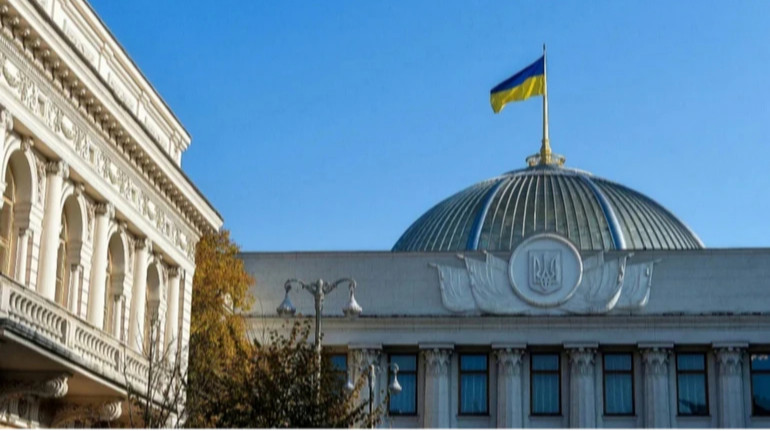Verkhovna Rada returns independence to NABU and SAPO, but retains control over SBU
31 July 16:09
The Verkhovna Rada has passed Law 13533 by a majority vote (331 in favor), which restores the independence of the NABU and the SAPO following criticism from the West and protests in a number of Ukrainian cities. Earlier, 263 MPs, including 185 from the Servant of the People faction, supported restricting the independence of the anti-corruption agencies. The law has already been signed by the Speaker of the Parliament and the President. What has changed in the new law in the work of the NABU and the SAPO, and what restrictions remain, was investigated by "Komersant Ukrainian".
Actually, NABU and SAPO can now breathe a sigh of relief – the procedural autonomy that was lost has been partially restored. The new law partially restores SAPO’s procedural independence: the right of SAPO prosecutors to determine jurisdiction, manage groups and prevent the Prosecutor General from interfering in NABU cases is restored. However, the autonomy of the NABU itself remains partially limited – inspections and control by the SBU are allowed, and personnel issues remain unreformed.
At the same time, while the previous law gave the Prosecutor General unlimited powers – to request investigation materials, give binding written instructions to NABU detectives, change jurisdiction and transfer cases to other bodies – the new law has changed everything. The Prosecutor General retains the right to request materials not related to NABU cases, but can no longer interfere with the jurisdiction and influence NABU investigations. NABU detectives now only follow the instructions of the SAPO prosecutor. At the same time, similar powers are formally retained for other agencies.
Searches without a court order are canceled. Judicial control is restored, and a ban on searches without a warrant in anti-corruption cases is introduced.
With regard to personnel policy, the provisions of Law 12414, which abolished mandatory open competitions for the appointment of prosecutors, remain in place: appointments and dismissals without competition are allowed, in particular in connection with reorganization. The new law did not bring back competitions, which remains a violation of the CCU’s decision No. 11-r(II)/2024 and European standards. The previously adopted rule on transferring the investigation at the request of relatives to their place of residence has also been retained.
New control in the new law
But there are also new items that were not in 12414:
- Polygraph and SBU checks: every 2 years – a study for employees with access to state secrets, the first – in bulk within 6 months.
- Restrictions on NABU employees traveling abroad during martial law (only business trips).
- International search and recovery of assets: active role of the NABU, the PGO, the Ministry of Justice and other bodies in the process of extradition and recovery of assets within 3 months.
These new points are controversial, because no matter what the formal status is, the NABU is under the control of the SBU, lawyers say. Law No. 13533 introduces mandatory checks for NABU and SAPO employees who have access to state secrets: a polygraph (lie detector) every 2 years, plus an unscheduled check within 6 months after the law comes into force. The SBU’s checks include the study of the environment, connections, and lifestyle.
“SAPO and NABU employees are vetted by the SBU, which is not an independent body, it is subordinate to the president and has broad powers without sufficient guarantees against abuse. The SBU has previously been found to be trying to put pressure on the NABU. The polygraph is not recognized as a scientific method, has no standardized procedures, depends on the operator’s interpretation (subject to manipulation) and is not used as evidence in court (neither in Ukraine nor in the EU). Polygraph plus inspections are subjective instruments of influence. Failure to pass a polygraph is grounds for suspension, dismissal or blocking career growth,” says attorney Valentyn Serkov.
Interference with privacy
In general, the provisions on polygraphs and SBU inspections in the new law potentially violate the Constitution (violation of the right to privacy – Article 32 and a number of other articles), international law and Ukraine’s obligations to the EU, the lawyer notes. They also create risks of pressure on anti-corruption bodies and can be used as a tool of political influence. By the way, according to the conclusions of the Venice Commission, anti-corruption bodies should be independent both structurally and in terms of personnel. Interference by other bodies (including law enforcement agencies) is unacceptable.
“In fact, it is necessary to exclude the SBU’s participation in the selection of personnel and inspections of the NABU and create an independent commission. The polygraph should be used only as an auxiliary tool, not as a ground for dismissal. Develop a mechanism for appealing disciplinary and personnel decisions based on an “integrity assessment.” Enshrine judicial control over interference with private and proprietary information,” the lawyer believes.
But, as the lawyers emphasize, there is nothing to be done about it. The bill has been signed and is coming into force. We can only hope for amendments to the already adopted law.
The author: Alla Dunina









